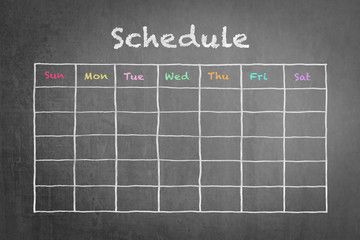Developing School Sport Through Timetable Collaboration

Developing School Sport Through Timetable Collaboration
School sport is difficult in December and January. Dark nights make after-school sport impossible without floodlit facilities, and even schools who have this advantage are only able to illuminate small numbers of pitches and courts. Those with Saturday sport are able to keep the programme going, though morning starts in wet or frozen conditions mean that many scheduled encounters do not take place. For a third of the school year, from October half term until February, opportunities for competition are limited by light and weather. Cup ties and tournaments almost always result in unpopular requests to take pupils out of lessons.
The amount of Saturday school sport continues to shrink in many parts of the sector. Fewer teams, more cancelled games, reluctant staff and uncommitted pupils and parents all exert downward pressure.
For many schools, an answer to these issues may come in a timetable alignment. There is no reason why this could not be achieved at a national level. Most schools have a year group at a time having games lessons in the afternoons; those that don’t could mostly choose to do so if they wished. Simply by aligning this concept with other schools allows two things: the first is to enable mass participation fixtures to happen on such games afternoons, potentially involving every pupil in both schools in an appropriate form of inter-school competition. The second is to accommodate cup fixtures or tournaments, as all teams would be potentially available on the same day across the country. This would reduce the need to miss lessons, have after-school matches with late finishes or a major seasonal interruption in the darker months.
Some areas, of course, have local arrangements that already achieve this. Collections of schools, for example the Warwick and Trinity Groups, achieve it over a larger area. Extending it nationally would not be difficult for like-minded schools. This might be a starting point for 11-18 schools:
Monday: Year 8
Tuesday: Year 9
Wednesday: Years 11,12,13
Thursday: Year 10
Friday: Year 7
This doesn’t mean that schools would use their games time for fixtures every week. Coaching time would be at least equally valuable, and the balance of each would be a fine judgement. However, most pupils list school matches as the high point of their experience, and such an arrangement would allow the opportunity to be more widely extended. It would be an extension to Saturday sport for many schools. Only schools with no desire to extend the opportunity of participation in competition, nor any interest in entering cup competitions, would not benefit at all.
This could provide a framework for collaboration that all schools could access, if they so wished. For those who didn’t, there would be no additional disadvantage. It wouldn’t compel schools to hold matches on games afternoons, but it would facilitate it where it was felt desirable. No autonomy would be undermined, but the opportunity for collaboration would be significantly increased. It could provide a framework in which schools could operate according to their own principles. It is hard to see a reason why not.